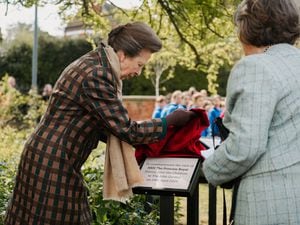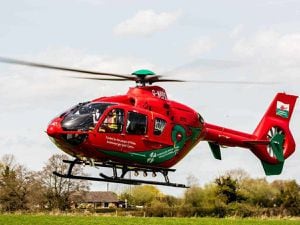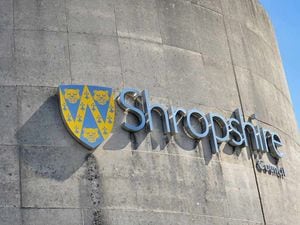Brewers need a helping hand to save great British pub
Banks’s boss explains why he is leading a national campaign to save the Great British Local
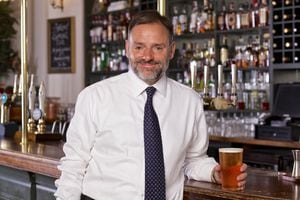
Ralph Findlay recalls the time he took George Osborne to the top floor of Banks’s Park Brewery in the West Midlands.
As they looked down over the sprawling complex of buildings, the towering chimney stacks, the yards packed with thousands of barrels, he told the then chancellor: “If you don’t get the beer duty regime changes, you are going to be looking at a hole in the ground here.”
How much of an impact his words had on Mr Osborne, he doesn’t know. But in his next budget, the chancellor scrapped the controversial beer ‘escalator’ which had seen the tax on a pint of Banks’s increase by nearly 50 per cent in just five years.
Mr Findlay, chief executive of Marston’s is now calling for the Government to act once more – to save the Great British Local.
As the boss of Britain’s largest independent brewer, based in Wolverhampton, he is the man spearheading the British Beer Alliance’s Long Live The Local campaign, which has attracted the support of celebrity pub owners Jodie Kidd, James Blunt, Tom Kerridge and Candice Brown.
So far, nearly 149,000 people have signed its petition calling for a cut in beer duty in the next budget, and nearly 67,000 people have sent emails to their MP about the matter.
The beer escalator, was introduced by the Brown government in 2008, committed the Treasury to annual increases of beer duty of two per cent above the rate of inflation.
Devastating
Sitting in his bracingly cool office at Marston’s head office, he speaks of the devastating effect the escalator has had on the pub trade. During the five years it was in place, beer sales fell by 24 per cent, 5,000 pubs closed, and 58,000 jobs were lost.
“People say an extra penny on beer isn’t a big deal,” he says.
“But when you add it up across a pub it is a big deal. It makes a difference as to whether pubs survive or not.”
There have been other issues, he says. Rising business rates, increases in the minimum wage, but he says it has been the rise in beer duty which has killed so many pubs.
But while the escalator may have been scrapped, Mr Findlay says its legacy still hangs like a dark cloud over the industry, with pubs continuing to shut. He warns that unless something is done to reverse the increases in beer duty over past 11 years, then the future for the pub trade and its associated industries could be very bleak indeed.
“In 2008, when the beer escalator was introduced, there were about 65,000 pubs across the UK. There are now 45,000.
“It is forecast that 11 per cent of the remaining pubs will close over the next five years, so that will be another 5,000 pubs gone.”
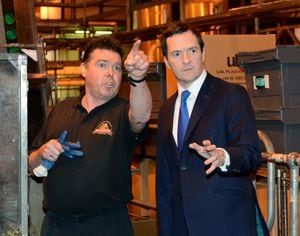
Mr Findlay points out that beer duty in the UK is way above that of other European countries. A pint of beer with an alcohol-by-volume strength of five per cent attracts a duty of 54.2p in the UK, compared to 4.8p in Germany and 5.1p in Spain. Duty rates are higher in the Netherlands, but at 19.3p a pint, they are still a fraction of those in the UK.
“Beer duty is three times the EU average,” he says, adding that one pound in every three spent in a pub finds its way to the Treasury.
Mr Findlay acknowledges that the Government will face a lot of economic pressures over the coming months, with many competing demands for both spending increases and tax cuts.
But he warns that if beer duties continue at their current levels, the Government risks killing the goose which lays the golden egg.
“Tax revenues generated by pubs are worth £10 billion a year to the Treasury,” he says. “Marston’s alone pays £400 million a year to HM Revenue and Customs, the amounts are huge.”
To put these figures into context, four years’ worth of alcohol duty would cover the £39 billion severance payment for leaving the EU. And while the cost of HS2 seems to be something of a moving target, a decade’s worth of drinks duty would probably cover the cost.
“The Government risks losing all this money if it continues to treat the pub trade as a cash cow,” he says. The average pub, he adds, pays £140,000 a year in beer duties, VAT, and business rates. So if pubs do close at the forecast rate, it will leave a £700-million-a-year hole in Government coffers.
Pubs are dear to Mr Findlay’s heart. In the early 1980s he served behind the bar of a sometimes boisterous student pub in his home town of Edinburgh. He joined what was then Wolverhampton & Dudley Breweries in 1996 as financial controller, and was appointed to the top job in 2001.
“The pub trade gave me my first job, and I wouldn’t want other people to be denied the opportunity that gave me,” he says.
“One million people are employed in the pub trade,” he says, adding that it is estimated that 20,000 of these jobs could go over the next five years. He points out that 44 per cent of pub workers are under the age of 25, keeping a crucial demographic group in employment.
But aren’t many of these jobs unskilled, low-paid and part-time?
“That makes me really angry when people say these jobs are not worthwhile,” says Mr Findlay.
“Many of our pub managers are people who started working behind the bar. They can be responsible for 40 or 50 people, for monitoring the finance, for stock control, for health and safety. They have skills in all areas, they are effectively the managing directors of their own small businesses.”
Mr Findlay’s gentle heckling of former chancellor Mr Osborne goes back to the early days of the Coalition government.
“I saw a picture in the Daily Mail of David and Samantha Cameron sitting on a pub wall outside the Ty Coch Inn at Morfa Nefyn in north Wales,” he recalls.
“He had a pint of Pedigree in his hand, his wife had a half of lager, and he was grimacing. I cut it out and sent it as a Christmas card to George Osborne, saying ‘even the Prime Minister’s had enough about the price of a pint’.
“When I later met George Osborne, he said ‘you’re the bloke who sent the Christmas card’, so it shows they do sometimes get the message.”
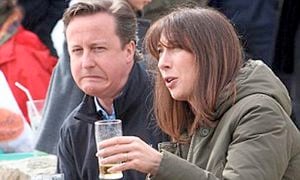
But he says while the industry enjoyed regular access to ministers under the Cameron governments, that disappeared following Theresa May’s arrival in Downing Street three years ago.
The atmosphere changed in government and while the message continued to be said it was not hitting home.
“Theresa May came to Birmingham shortly after she became prime minister, and I went to meet her,” he says. “I went through a whole series of points, and said ‘if you don’t get to grips with some of these you will see thousands of pubs, clubs and bars closing across the UK.
“We didn’t get any response. The Government is so fixated with delivering Brexit at the moment.”
The industry also faces a hurdle in that its call for a cut in beer duties comes at the same time as there are growing noises for minimum pricing for alcoholic drinks.
But Mr Findlay says there are public health arguments for a cut.
“First of all, if you look at beer as a category, it’s relatively to other drinks, it’s a fairly low strength category. The average pint of ale is about 3.8-4 per cent, whereas wine is 10-12 per cent,” he says.
He also argues that the increase in taxes on beer have simply led to people drinking at home rather than in a pub.
Increase
“If the rate of duty on beer goes up, the pub has to pass the cost on,” he says.
“The big supermarket groups on the other hand can say ‘our price isn’t going up’, they’re big enough to do that, and the brewer will have to absorb the increase.
“I think alcohol is best consumed in a controlled environment and in a social setting.”
And he warns that if pubs continue to close at the alarming rate they have done so over the past decade, then a crucial part of the British identity will be lost.
As well as providing an important place for people to meet and make friends, he says many charities would also suffer were it not for the money raised by pubs.
“At Marston’s we raise £1 million every year for local charities,” he says. “In many rural areas, you find the shop has closed, the church has gone, the pub is the last thing to go.
“When that closes, many village lose their only community asset.”
Pubs, he says, are the lifeblood of many communities, and a Britain without them would be a much poorer place. Too many locals have already been lost.
He recites the thoughts of French poet Hilaire Belloc on the subject: “’Change your hearts or you will lose your Inns and you will deserve to have lost them. But when you have lost your Inns drown your empty selves, for you will have lost the last of England’.
“I love that quote,” he says.
For more information about the campaign, visit longlivethelocal.pub
Pub boss: You have to keep ahead of the game
Listening to your customers and offering something different to your rivals is the key to running a successful pub, says Jon Brown.
Jon, 27, celebrates the second anniversary since he took over the Golden Lion in Bridgnorth next month.
He is optimistic about the future of the pub trade, but says you always have to be one step ahead of the game if you are to survive.
Jon says being in the heart of a thriving town means his pub does not suffer like some from the high levels of beer duties, but he is not surprised that some of them are struggling.
“I can see it being quite difficult in some locations,” he says.
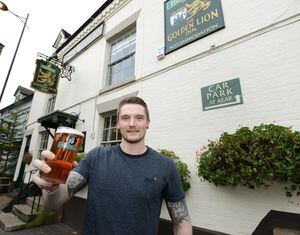
“Beer duties are high, they do seem to increase every year, it can be quite damaging really.
“It doesn’t hurt us too much, an extra 10p here and there is not going to damage us too much, but it doesn’t surprise me that the beer duties are putting a lot of pubs at risk.
“It’s quite difficult in some locations, in the smaller, more rural locations, or the cities. We’re lucky that Bridgnorth is quite popular with tourists, and is well known for its pubs.”
Business rates on the premises are taken care of by the building’s owner, Dudley-based Holden’s Brewery, but he believes they are ‘quite astronomical’.
“The business rates also have a knock-on effect on other things, like Sky television,” he says.
“It is the reason why we don’t show Sky sports, but it just means that we have to focus on doing things that the other pubs aren’t.”
Jon says customers are much more discerning about what they drink.
“You do get one or two of the old-school drinkers, but these days people tend to want more premium products.”
He says he tried offering food for a time, but decided instead to concentrate on the drinks trade.
“We have got a nice neutral place to go, it’s very friendly, there’s a nice atmosphere and I don’t tolerate any shouting or boisterous behaviour,” adds Jon.

